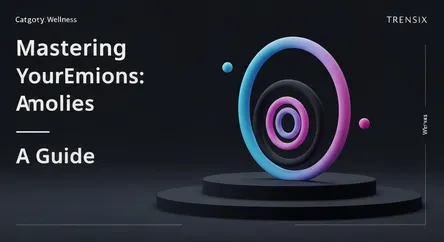Wellness
Mastering Your Emotions: A Guide

Learn what emotional regulation is, why it's a key wellness trend, and how mastering this skill can improve your mental health and relationships.
What is it?
Emotional regulation is the ability to manage and influence your emotional experiences. It's not about suppressing or eliminating feelings, but rather moderating their intensity and duration in healthy ways. This complex process involves recognizing your emotions, understanding their triggers, and choosing how to respond to them effectively. Strategies can be conscious, like rethinking a stressful situation to reduce anxiety, or unconscious, such as automatically taking a deep breath to calm down. The goal is to maintain balance and prevent emotions from becoming overwhelming.
Why is it trending?
The focus on emotional regulation has grown alongside the global conversation about mental health and wellness. In an era of high stress and digital overstimulation, the ability to manage one's inner world is more crucial than ever. Practices like mindfulness and cognitive-behavioral techniques, which are central to improving emotional regulation, have become mainstream. Furthermore, discussions around neurodiversity and different communication styles, such as the "Gen Z stare" being a form of emotional protection, have brought this psychological concept into the cultural spotlight.
How does it affect people?
Effective emotional regulation is fundamental to overall well-being. It promotes resilience, enhances relationships, and improves our ability to navigate life's challenges without acting impulsively. Conversely, difficulty with regulation, known as emotional dysregulation, can lead to significant problems. It is linked to mood swings, anxiety, depression, and impulsive behaviors that can damage personal and professional lives. Learning to regulate emotions effectively helps people feel more in control of their lives, fostering better mental health and a higher quality of life.